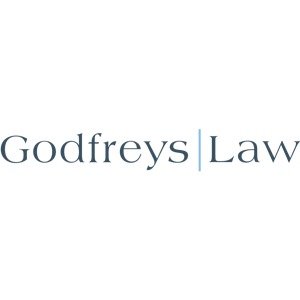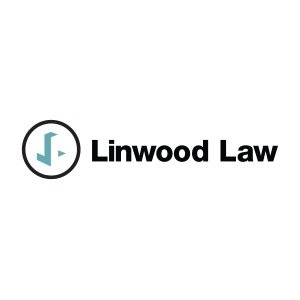Best Energy Regulatory Law Lawyers in Christchurch
Share your needs with us, get contacted by law firms.
Free. Takes 2 min.
List of the best lawyers in Christchurch, New Zealand
About Energy Regulatory Law in Christchurch, New Zealand
Energy Regulatory Law in Christchurch, New Zealand, governs the production, distribution, sale, and consumption of energy resources, including electricity, natural gas, and renewable energy sources. With Christchurch's focus on sustainable growth and infrastructure after the Canterbury earthquakes, both government policies and local authorities have placed strong emphasis on maintaining robust regulatory frameworks for the generation, supply, and use of energy. The law aims to ensure fair competition, consumer protection, environmental sustainability, security of supply, and compliance with national objectives.
Why You May Need a Lawyer
Seeking advice from a lawyer specializing in Energy Regulatory Law can be essential in several circumstances. Some common scenarios where legal help is beneficial include:
- Starting or expanding an energy-related business or project
- Navigating energy company mergers, acquisitions, or restructuring
- Understanding compliance obligations for energy generation or distribution
- Negotiating energy supply or purchase agreements
- Responding to regulatory enforcement actions or disputes with authorities
- Challenging or interpreting new regulatory rules or rates
- Resolving disputes with suppliers, consumers, or competitors
- Obtaining licenses, permits, or resource consents for energy infrastructure
- Staying updated with shifting renewable energy incentives and carbon reduction regulations
Local Laws Overview
A number of local and national laws shape the energy landscape in Christchurch. The Commerce Act 1986 governs competition within energy markets, while the Electricity Industry Act 2010 and Gas Act 1992 oversee supply and distribution. The Resource Management Act 1991 also plays a vital role, as it regulates environmental impacts and resource consent requirements for energy projects. The Electricity Authority and Energy Efficiency and Conservation Authority (EECA) act as key regulatory bodies. Locally, the Christchurch City Council enforces planning and consent processes and supports energy initiatives aiming for resilience and sustainability after the earthquakes. Compliance is critical for anyone engaging in the energy sector, whether as a provider or consumer.
Frequently Asked Questions
What does Energy Regulatory Law cover in Christchurch?
Energy Regulatory Law covers the entire energy supply chain, from generation and distribution to retail and consumer rights. It ensures compliance, safety, fair pricing, and sustainable practices within the energy sector.
Who enforces Energy Regulatory Law in Christchurch?
The Electricity Authority, the Commerce Commission, and the Christchurch City Council are primary regulatory bodies. The Energy Efficiency and Conservation Authority also plays a role in setting standards and promoting energy efficiency initiatives.
How do I get approval to build an energy project in Christchurch?
You must apply for the necessary permits and resource consents through the Christchurch City Council. Compliance with the Resource Management Act and specific energy sector regulations is mandatory.
What are my rights if I have a dispute with an energy supplier?
You have the right to seek resolution through the supplier's complaints process. If unresolved, you may escalate the issue to Utilities Disputes, an independent resolution service, or seek legal advice for further action.
Are there incentives for using renewable energy in Christchurch?
Yes, various national and local incentives exist, particularly for solar and energy efficiency upgrades. The EECA often administers government grants and information programs related to renewables.
Can small businesses compete in the energy market?
Small businesses can enter the energy market, but must comply with regulations set out by the Commerce Act and secure relevant licenses. Legal advice can clarify these requirements and ensure compliance.
What are the penalties for non-compliance with energy regulations?
Penalties may include fines, suspension or revocation of licenses, or orders to remedy any breach. Severity depends on the nature of the violation and harm caused to consumers or the environment.
How are energy prices regulated in Christchurch?
The Commerce Commission monitors and sometimes regulates electricity and gas prices, ensuring fair competition and preventing price manipulation among providers.
What laws apply to energy efficiency standards?
The Energy Efficiency and Conservation Act and regulations enforced by the EECA set benchmarks for energy efficiency. These standards apply to both residential and commercial properties and equipment.
How does planning law affect energy projects in Christchurch?
Planning law, largely under the Resource Management Act, controls where and how energy infrastructure can be developed. Local district plans and consent processes add additional requirements, so legal guidance may be necessary for complex projects.
Additional Resources
For further information or assistance, consider these resources and organizations:
- Electricity Authority - Regulates the electricity market
- Commerce Commission - Oversees fair competition and pricing
- Energy Efficiency and Conservation Authority (EECA) - Promotes energy efficiency and provides grants
- Utilities Disputes - Independent service for energy and water disputes
- Christchurch City Council - Local authority for resource consents and planning
- Community Law Canterbury - Provides free legal advice
- Ministry of Business, Innovation and Employment (MBIE) - Focuses on sector policy and legislation
Next Steps
If you believe you need legal assistance in the area of Energy Regulatory Law in Christchurch, it is advisable to start by clearly identifying your issue and gathering any relevant documents relating to your situation. Research lawyers or law firms in Christchurch who specialize in energy or regulatory law. Arrange an initial consultation to discuss your needs and obtain an understanding of your rights, obligations, and potential solutions. If you are struggling to afford a lawyer, consider reaching out to Community Law Canterbury or other charitable organizations. Keeping abreast of the latest regulatory changes by following updates from the key regulatory bodies listed above is also recommended to stay informed about your rights and responsibilities in the energy sector.
Lawzana helps you find the best lawyers and law firms in Christchurch through a curated and pre-screened list of qualified legal professionals. Our platform offers rankings and detailed profiles of attorneys and law firms, allowing you to compare based on practice areas, including Energy Regulatory Law, experience, and client feedback.
Each profile includes a description of the firm's areas of practice, client reviews, team members and partners, year of establishment, spoken languages, office locations, contact information, social media presence, and any published articles or resources. Most firms on our platform speak English and are experienced in both local and international legal matters.
Get a quote from top-rated law firms in Christchurch, New Zealand — quickly, securely, and without unnecessary hassle.
Disclaimer:
The information provided on this page is for general informational purposes only and does not constitute legal advice. While we strive to ensure the accuracy and relevance of the content, legal information may change over time, and interpretations of the law can vary. You should always consult with a qualified legal professional for advice specific to your situation.
We disclaim all liability for actions taken or not taken based on the content of this page. If you believe any information is incorrect or outdated, please contact us, and we will review and update it where appropriate.

















